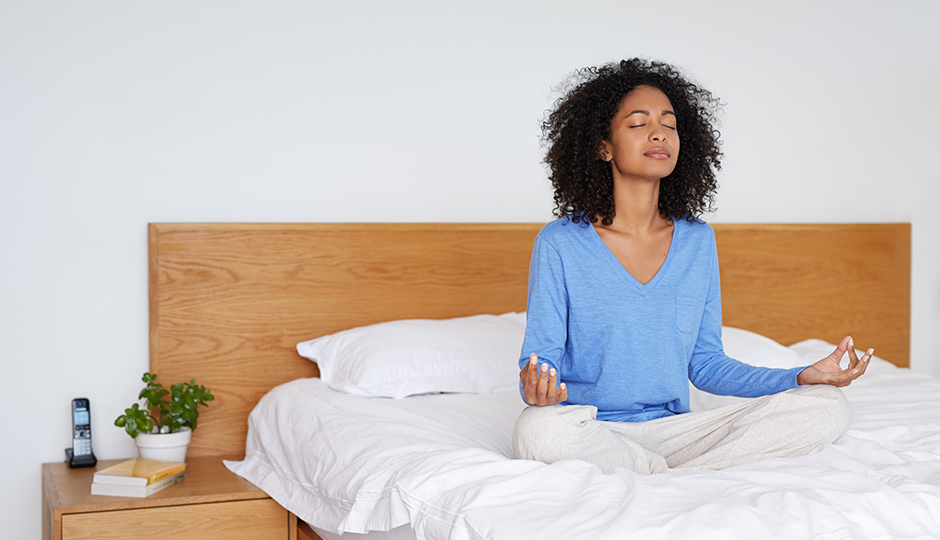6 Excuses to Stop Making When Considering a 10 Minute Morning Meditation Routine

Photo Credit: Getty Images
If you, like many of us, spend the first few minutes (or more) post-alarm checking your phone, know this: there’s a much healthier way to wake up. It’s called meditation, it takes 10 minutes, and keeping up with it will change your life.
The positive effects of meditation have been proven time and time again. Meditation lifts the brain from its regularly programmed schedule of sleep, wake, eat, work, repeat into what most refer to as a “higher consciousness.” For the uninitiated, this might seem like an impossible feat. It’s hard enough to find time in your day to take a proper lunch break, let alone train your mind to be more mindful… right?
Wrong. Below, we broke down every excuse in the book so that you can say goodbye to your procrastinating ways and start carving out a few minutes a day for a better you.
I’m too tired. Don’t hit that snooze button. While quick fixes like sleeping a little longer or downing cups on cups of coffee might seem appealing at the moment, think about the bigger picture. Meditation is proven to improve your sleep patterns, making you less susceptible to toss-and-turn nights and subsequent ragged-feeling mornings. Not convinced? See how you sleep after a week’s worth of morning mindfulness (answer: like a baby).
I’m too busy. That’s funny, studies say it’s people like you who could benefit most. Think about it this way: you already take 10 minutes to check social media, brew a pot of coffee and take a shower in the morning. What’s another 10? On top of it all, when you take a break from the bustle and literally give your mind some space to think, you can actually improve your focus. That means you’ll start feeling less “busy” and start getting more done.
I have too much on my mind. Precisely. If you think meditating is an inner struggle in mind control, you’ve got it all wrong. Many practices actually encourage wandering thought. According to Headspace, it’s helpful to imagine each passing thought as a car on a highway, driving past a very still and rooted you. Don’t get stuck on or elaborate these ideas, let them come and go. You can practice this whenever an unnecessary thought or worry comes to mind — just show it the door.
I’m not really a meditation person. Have you noticed when you are at your most stressed, the only appropriate advice you ever get is to “breathe?” Be proactive in your leveling out by taking 10 minutes every morning for a relaxing reset. It could help you gain a new perspective on your biggest triggers. Research is currently being conducted around the science between mindfulness-based stress reduction (or MBSR) and a handful of chronic illnesses, and so far, signs have pointed to improvements when paired with a healthy diet and exercise. So, are you a “meditation person” yet?
I don’t know where to start. Thankfully, there’s a relatively new crop of wellness apps that take the guesswork out of the equation. Try Headspace, which offers daily guided meditation practices you can listen to on your phone, or Stop, Breathe & Think’s meditation timers and guided practices that can been programmed into your Amazon Echo (thanks ahead of time, Alexa!). If apps just aren’t your thing, there are a handful of free guided meditation resources to get you started. Or, you can read our recent discussion with local meditation teacher Daphne Lyon, who ran us through how to kick-start your meditation practice.
It sounds expensive. False. Because the mindful movement is on trend right now, there are a handful of boutique classes, high-end gear and pricey programs that will try to cash in. When you’re just starting out, you don’t need fancy gear or fancy retreats to sit on the floor and think. Of course, if you decide to deepen your practice, investing in the community is a good idea.
For more information on how Independence Blue Cross is there to support your healthy lifestyle, visit ibx.com.
This is a paid partnership between Independence Blue Cross and Philadelphia Magazine


